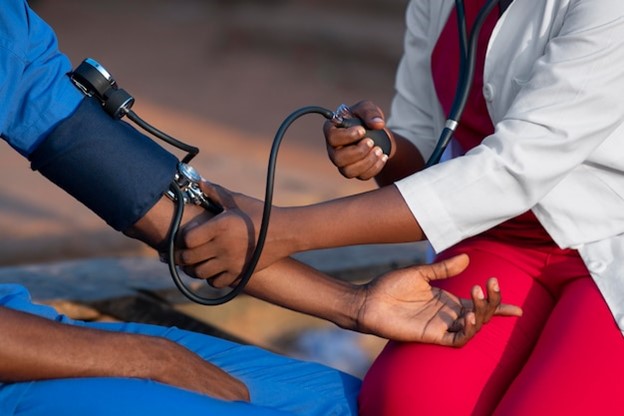Hypertension, commonly known as high blood pressure, is a significant health concern in South Africa. It is a condition characterized by elevated blood pressure levels, which can increase the risk of heart disease, stroke, and other serious health complications. The good news is that hypertension can be prevented and effectively managed with lifestyle modifications and appropriate medical interventions. Here are some essential tips for preventing and managing hypertension in South Africa:
- Maintain a Healthy Weight: Being overweight or obese increases the risk of developing hypertension. Aim to achieve and maintain a healthy weight by adopting a balanced diet and engaging in regular physical activity. Consult with a healthcare professional or registered dietitian to create a personalized nutrition plan that includes a variety of nutrient-rich foods while limiting salt, saturated fats, and added sugars.
- Follow a Heart-Healthy Diet: Emphasize a diet rich in fruits, vegetables, whole grains, lean proteins, and healthy fats. This eating pattern, known as the DASH (Dietary Approaches to Stop Hypertension) diet, has been shown to lower blood pressure. It is also important to reduce the consumption of processed and high-sodium foods, as excessive salt intake contributes to hypertension. Be mindful of food labels and choose low-sodium options whenever possible.
- Limit Alcohol Consumption: Excessive alcohol consumption can raise blood pressure levels. If you drink alcohol, do so in moderation. For men, this means consuming no more than two standard drinks per day, and for women, no more than one standard drink per day. It’s also important to note that some medications used to manage hypertension may interact negatively with alcohol, so it’s best to consult with a healthcare professional for personalized advice.
- Reduce Sodium Intake: High sodium intake is strongly associated with hypertension. Read food labels carefully and choose low-sodium alternatives whenever possible. Limit the use of salt in cooking and avoid adding extra salt to meals. Experiment with herbs, spices, and other flavorings to enhance the taste of your dishes without relying on salt.
- Engage in Regular Physical Activity: Regular physical activity is essential for maintaining healthy blood pressure levels. Aim for at least 150 minutes of moderate-intensity aerobic exercise or 75 minutes of vigorous-intensity aerobic exercise per week. This can include activities such as brisk walking, cycling, swimming, or dancing. Additionally, incorporate strength training exercises at least two days per week to improve overall fitness.
- Quit Smoking: Smoking is a significant risk factor for hypertension and heart disease. If you smoke, quitting is one of the best things you can do for your health. Seek support from healthcare professionals, counseling services, or support groups to help you quit smoking successfully.
- Manage Stress: Chronic stress can contribute to hypertension. Find healthy ways to manage stress, such as practicing relaxation techniques, engaging in hobbies, spending time with loved ones, or seeking professional help if needed. Regular exercise, meditation, and deep breathing exercises can also be effective stress-management strategies.
- Monitor Blood Pressure: Regular monitoring of blood pressure is essential for managing hypertension. Have your blood pressure checked regularly by a healthcare professional and follow their guidance on maintaining optimal blood pressure levels. Home blood pressure monitoring devices are also available, allowing you to track your blood pressure between healthcare visits.
- Adhere to Medication and Treatment Plans: If prescribed medication to manage hypertension, take it as directed by your healthcare professional. Do not discontinue or adjust medication without consulting them first. It’s important to follow the treatment plan, attend regular check-ups, and discuss any concerns or side effects with your healthcare team.
- Seek Regular Medical Care: Regular check-ups with a healthcare professional are crucial for preventing and managing hypertension. These visits allow for the monitoring of blood pressure, assessment of overall health, and adjustment of treatment plans if necessary. Regular medical care ensures that any potential complications or risk factors can be identified and addressed promptly.
Remember, hypertension is a manageable condition, and small lifestyle changes can have a significant impact on its prevention and management. By adopting a healthy lifestyle, seeking medical care, and making informed choices, you can take control of your blood pressure and reduce the risk of complications associated with hypertension. Stay proactive about your health and encourage others around you to do the same.










